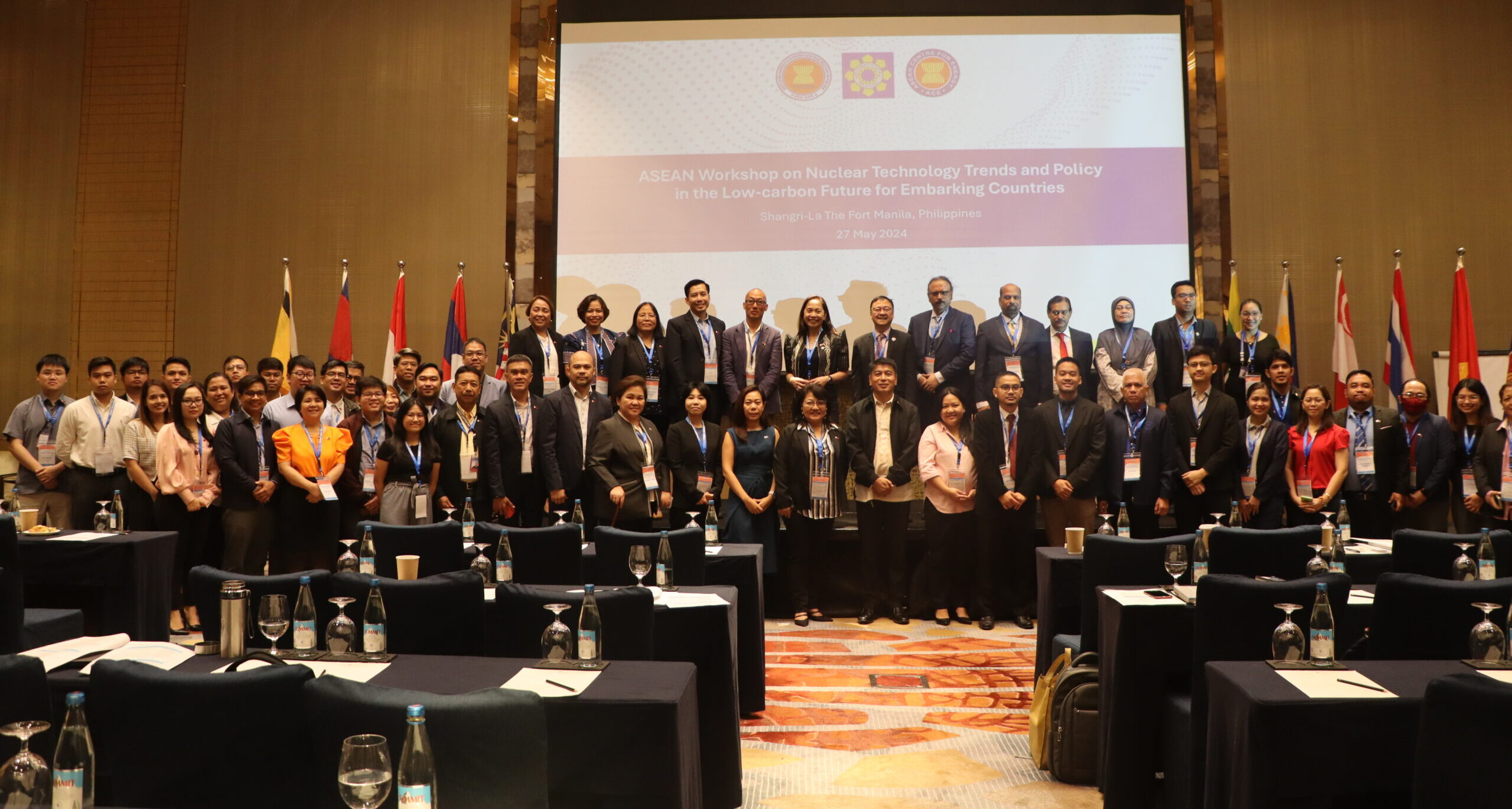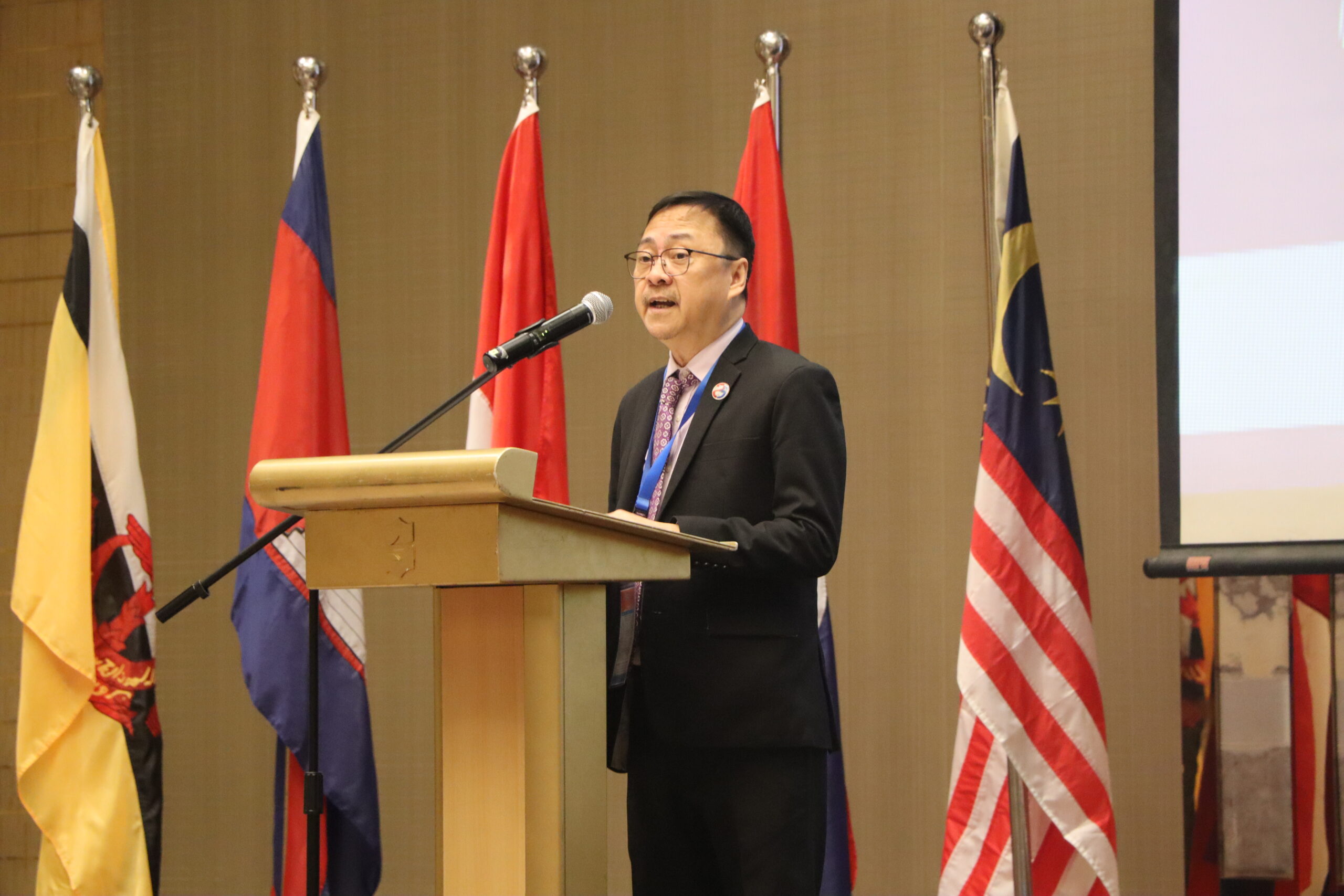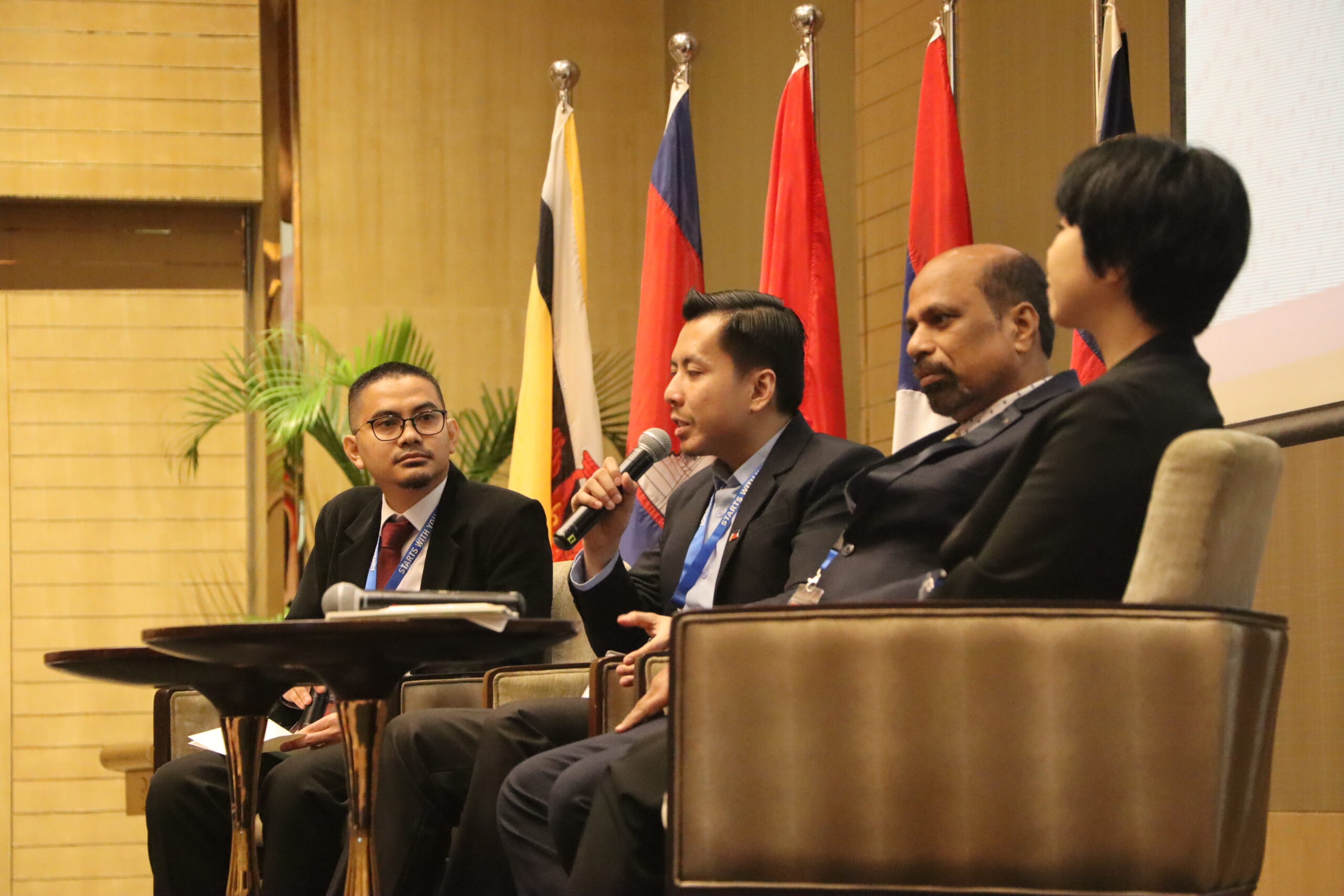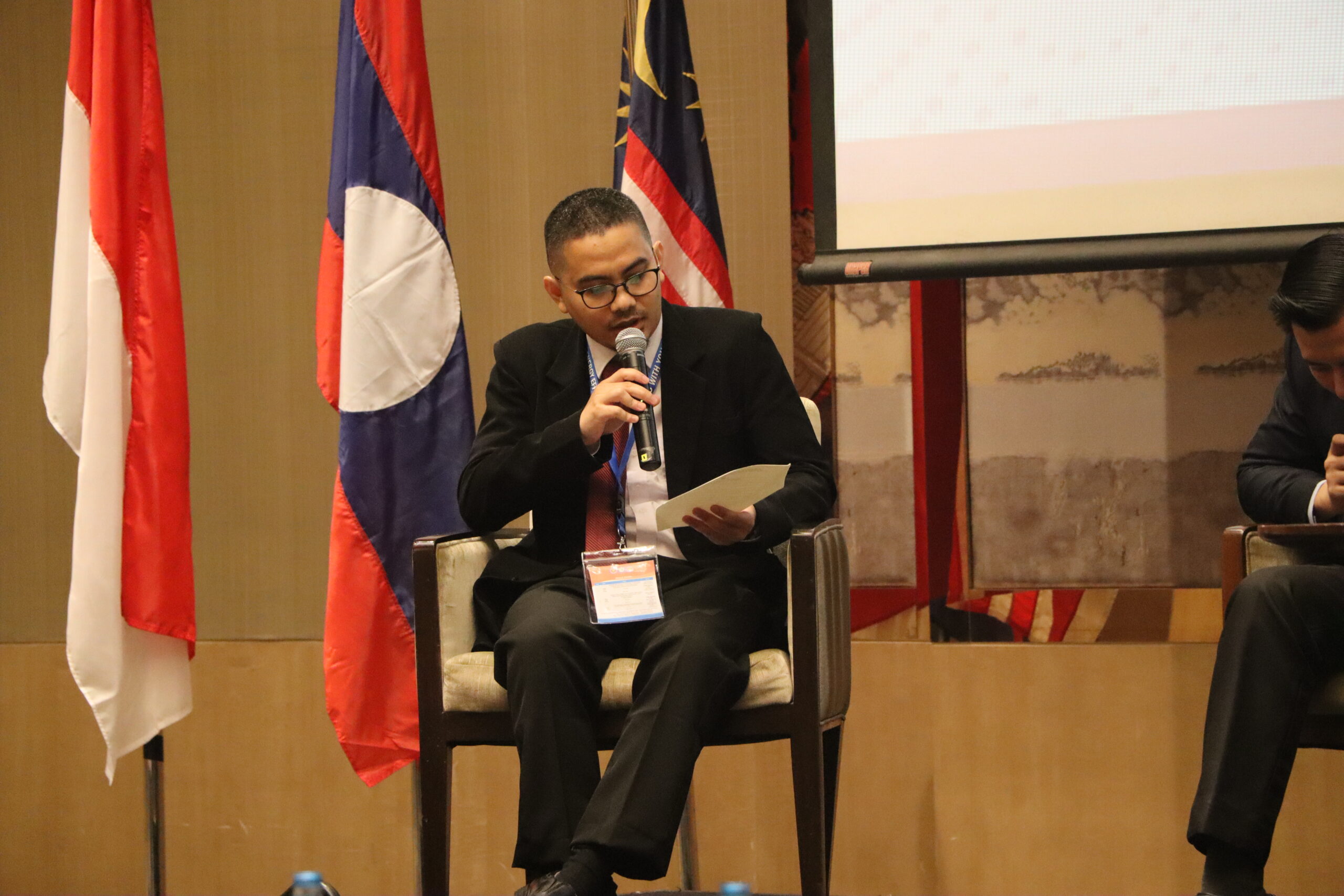Menu

Photo 1. Nuclear Technology Trends and Policies in the Low-carbon Future for Embarking Countries Workshop Participants
The ASEAN Workshop on Nuclear Technology Trends and Policies the Low-carbon Future for Embarking Countries, as part of the 14th Nuclear Energy Cooperation Sub–Sector Network (NEC – SSN) associated meeting, was convened in Metro Manila, the Philippines on 27 May 2024. Eight (8) AMS – Cambodia, Indonesia, Lao PDR, Malaysia, the Philippines, Singapore, and Thailand, along with the representative from the ASEAN Secretariat (ASEC), ASEAN Centre for Energy (ACE), gathered to embark and share the best practices on nuclear technology trends and regulatory frameworks. International Organisations and Dialogue Partners, namely the International Atomic Energy Agency (IAEA), Integrated Support Centre for Nuclear Non-proliferation and Nuclear Security, Japan Atomic Energy Agency (ISCN/JAEA), World Nuclear Association (WNA), and Global Cooperation on Nuclear Energy Partnership India (GCNEP) shared insights on nuclear technologies advancement and financing mechanisms throughout the event, showing their support towards nuclear energy development in ASEAN.
The workshop began with a warm welcome from Sharon S. Garin, Undersecretary and Nuclear Energy Programme Coordinating Council (NEP-CC) Chair, Department of Energy Philippines, and Chair of NEC-SSN, highlighted the significant progress made by the Nuclear Energy Cooperation Sub-Sector Network (NEC-SSN) through the years, also announced an upcoming IAEA Integrated Nuclear Infrastructure Review (INIR) mission to the Philippines in December this year, urging continued preparation for the national nuclear power programme.

Photo 2. Welcoming remarks by Christopher G. Zamora, Senior Head of APAEC Department of ACE
Christopher G. Zamora, Senior Head of APAEC Department at ACE, welcomed all participants from eight (8) ASEAN Member States and extended gratitude to the honourable NEC-SSN focal points of each ASEAN member on behalf of Dr. Nuki Agya Utama, Executive Director of ACE. He highlighted ACE’s commitment to advancing energy transition through nuclear energy implementation through this workshop to support and facilitate the dialogue. H.E. Jayant N. Khobragade, Indian Ambassador to ASEAN, also delivered opening remarks, with an emphasis on ASEAN-India collaboration efforts to advance nuclear energy utilisation within the region.
The first session was moderated by Director Patrick T. Acquino, Director of Energy Utilisation Management Bureau (EUMB), Department of Energy of the Philippines, highlighting presentations on the Nuclear Power Plant (NPP) technology trends. Dr. Arun Kumar Nayak, Head of the Nuclear Control and Planning Wing (NCPW) of Department of Atomic Energy (DAE) of India, discussed suitability and selection of nuclear technologies to support carbon neutrality in embarking countries. The session continued with presentation by King Lee, Head of Policy and Industry Engagement at the World Nuclear Association (WNA), who provided updates on advanced nuclear technologies, such as Gen 3+, SMRs, Gen 4, and nuclear fusion technology. The session concluded with a lively discussion, engaging participants about the potential and challenges of nuclear technology in carbon neutrality.

Photo 3. Rully Hidayatullah (left) Associate Senior Research Analyst on Nuclear at ACE as moderator for the second session
The next session was moderated by Rully Hidayatullah, Associate Senior Research Analyst on Nuclear at ACE focused on the policy needed to support nuclear power deployment. Naoko Noro, General Manager of the International Capacity-Building Office at ISCN/JAEA presented human resource development in Japan’s nuclear industry. Dr. Valerie Ann I. Samson, Deputy Director at PNRI, also discussed the regulatory frameworks on nuclear in embarking countries. She highlighted the urgency of the independent nuclear authority, the importance of human resource development for nuclear regulatory bodies, and the progress of developing national nuclear law and regulation.
The session continued with presentations from Director Patrick T. Acquino, Director of Energy Utilisation Management Bureau (EUMB) at DOE Philippines and Suwondho Arie Prayudho, Energy Analyst atMEMR Indonesia, who presented a comprehensive view of the current and future landscape of the Philippines and Indonesia strategic approach to integrate nuclear energy, including any potential cooperation activities plans. Dr. Arun Kumar Nayar, also discussed the policy implementation and stakeholder coordination, particularly in India.

Photo 4. Wrap-up, Summary, and Way Forward by Rully Hidayatullah, Associate Senior Research Analyst on Nuclear at ACE
The day wrapped up with presentation on recent trends in nuclear power, financial aspects of new nuclear programs, and cooperation between ASEAN and IAEA, with Dr. Henri Paillere, Head of Planning and Economic Studies of IAEA, and Chaewon Lee, Senior Nuclear Power Engineer of IAEA providing valuable insights. The workshop concluded with a summary and way forward discussion led by Rully Hidayatullah, who emphasised continued collaboration and knowledge sharing of nuclear technology in the broader context of sustainable development and energy security. This workshop marked a significant step towards understanding the Nuclear Power Plant (NPP) deployment in ASEAN’s journey towards a low-carbon future.
